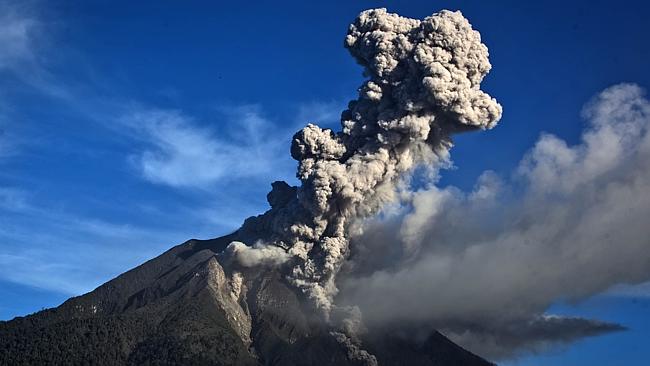Study reveals volcanoes are helping to protect the Earth from global warming
THEY may be hot but volcanoes are playing a vital role of protecting the planet from global warming. Why are these magma mountains so cool?

IT might sound like an oxymoron but volcanoes are actively helping to cool the planet and halt global warming in its tracks.
Yes, those lava spewing peaks have been protecting the planet from potentially catastrophic climate changing ultraviolet light.
According to work published in Nature Geoscience the increased activity between 2000 and 2012, which saw 17 volcanic belches, have acted to keep global warming at bay.
Every time there’s an eruption tiny droplets of sulfuric acid in the ash are injected into the Earth’s atmosphere, reflecting away incoming sunlight and in turn shading the planet.
“The uptick in early 21st-century volcanism clearly was a contributing factor to the hiatus,” says atmospheric scientist Benjamin Santer of Lawrence Livermore National Laboratory, lead author of the report.
But Scientific American reports the volcanoes were also helped out by an “unusually quiescent sun” as well as air pollution from China’s coal-fired power plants, ironically.
Sadly a volcano’s particles can only stay in the atmosphere for an indefinite time — a supersized eruption like Mount Pinatubo in 1991 will see its reflective aerosols falling back to ground within a few years.
Should there be a dry period of volcanic activity there won’t be enough aerosols being topped up in the atmosphere to keep the shield strong. So what do we do then?
If exposed to the full force of the sun’s power climate change could be expedited resulting in increased ice cap melting, rising sea levels and catastrophic effects on eco systems.
If we can’t rely on volcanoes to help, the article goes on to say that we could manually inject sulfate aerosols in the stratosphere as a substitute for eruptions. However, the unfortunate side effect of this is sulfuric acid can essentially eliminate the ozone layer.



